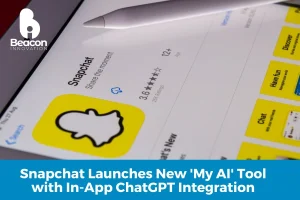Article Summary:
Present study examined the experiences of teachers regarding online education challenges during COVID 19 in Pakistan. Findings of study illustrated that the majority of faculty members had no previous experience of online teaching while few faculty members reported previous experience of online teaching. According to findings of current study, the majority of teachers reported satisfactory online teaching experiences during COVID-19 and agreed to the use of technology for education as a way forward in Pakistan. Moreover, findings illustrated that barriers experienced by teachers in online teaching included increased workload, less interaction with students, lack of policies, lack of instructors training, lack of quality of course, inability to control students cheating, and lack of internet connectivity. Thus, it is clear that there are some major barriers associated with online education which need to be addressed.
Key Words: Online Education, Challenges, Teachers’ Perspective, Pakistan
Background:
Closure of educational institutions during COVID-19 is one of the leading steps in combating the pandemic. In Pakistan, introducing a digital learning system on a national level has been challenging for the Higher Education Commission (HEC). However, HEC (2020) sanctioned educational institutions to adopt a digital platform for continuing teaching and learning during a crisis. Because:
Stop teaching and learning was not a wise decision. Thus, embracing the digital education system became a need of time.
Online education was unconventional in Pakistan (Akram et al., 2020) however, studies conducted on digital learning reported the feasibility of online teaching and learning (Mukhtar et al., 2020; Sethi et al., 2019; Jawad & Ashraf, 2012). In developing countries, lack of resources is a main concern in the use of digital media for education. Besides, lack of resources it is considered that the foremost challenge in use of digital media is lack of technical skills among teachers (Riaz et al., 2020). Capability of instructors in order to incorporate different tasks and tools while teaching digital education are important to attain course goals and objectives (Bailey & Lee, 2020). Students attending online courses might easily get distracted by the content available on technology which may influence their participation in online class (Melor et al., 2012). Thus, it is crucial to engage students in live online sessions that can be only possible if instructors have previous knowledge and skills in adopting digital media as a medium for education.
To make digital learning more effective, improving technical skills and competencies is a crucial need of the present era. Though, training teachers to enhance their capabilities in technology seems challenging and costly, it is vivid that such initiatives ensure the standard, productivity and efficacy of online education. Therefore, it is important to identify teachers’ perceived barriers in online teaching. Keeping in view the major concerns of digital education, this study examines teachers’ experiences of online education challenges during COVID 19, perceived online teaching barriers and perceptions of teachers regarding the use of technology for education as a way forward in Pakistan.
Methodology
Sample
A total sample consisted of 52 teachers (Females = 58%, Males = 42%). Due to Covid 19, this sample was approached through online platforms such as LinkedIn, Email, Facebook, Instagram and WhatsApp.
In current study, 75% of the teachers were teaching at private universities, 14% at semi-government universities while 11% teaching at public universities. Moreover, the status of teachers suggested that 83% of teachers were working full-time while 17% working part-time.
Survey Instrument
Primarily items from Lioyd et al. (2012) were used including a limited number of authors’ self-developed items. The 11-item questionnaire consisted of four subscales including interpersonal barriers, administrative issues, internet access, and technical issues. Items were scored on 5-point Likert type scale ranging from 1 = Strongly Disagree to 5 = Strongly Agree. In addition, two items were used to assess the faculty experiences of online teaching. For instance, “Have you previously taught online?” scored on “Yes and No”. Secondly, “How was your experience of online teaching during CVOID-19?” scored on “Good, Neutral and Worst”. Lastly, teachers were also asked “Is using technology for education the way forward in Pakistan” responded on a 4-point Likert type scale ranging from “Definitely Not, Probably Not, Probably Yes, and Definitely Yes”.
Results
Findings in figure 1 revealed that the majority of the teachers had no previous experience of online teaching (62%) however, 38% teachers reported previous experience of online teaching.
Figure 1. Distribution of Teachers Responses on Previous Experience of Online Teaching
Based on survey results, the majority of teachers marked online teaching experience as satisfactory (50%) however, 40% teachers reported their online teaching experience as neutral. In addition, 10% of teachers considered online teaching as the worst experience (See Figure 2).
Figure 2. Responses of teachers on online teaching experiences during COVID-19.
Current study investigated the perception of teachers regarding the use of technology for education as a way forward in Pakistan. According to findings, the majority of the teachers agreed (90%) to the use of technology for education as a way forward in Pakistan while 10% of teachers disagreed (See Figure 3).
Figure 3. Distribution of teachers responses on use of technology for education as a way forward in Pakistan.
According to findings, the majority of teachers reported an increase of workload during online classes (71%), lack social interaction with students (64%) while 23% of teachers reported issues related to time management and anxiety/fear during online classes (15%) (See Figure 4).
Figure 4. Percentage of teachers’ response on items related to interpersonal barriers.
Responses of teachers on the items related to administrative and training issues depicted that the majority of teachers confronted troubles in controlling cheating (81%) and readjustment of quizzes, assignments and midterms (67%). In addition, other barriers associated with administrative and training issues included lack of policies for online classes (52%), lack of instructors training (48%), and difficulties in conveying course concepts (36%) (See Figure 5).
Figure 5. Percentage of teachers’ response on items related to administrative and training issues.
42% of teachers agreed that there was a lack of internet services during online classes while 20% disagreed (See Figure 6).
Figure 6. Percentage of teachers’ response on items related to internet access.
Findings in the above figure illustrate that 34% teachers faced power failure during online classes while 43% did not face such issues (See Figure 7).
Figure 7. Percentage of teachers’ response on items related to technical issues.
Discussion
The unprecedented outbreak of COVID-19 strictly enforced social distancing and lockdowns throughout the globe. In response, online learning was adopted swiftly in most of the countries (Johnson et al., 2020) due to its long term adverse effects on economic growth and development (UNESCO et al., 2020). Concerning the developing countries, introducing online education was unusual. Thus, it ensures that the sudden transition of traditional learning to digital learning might be intriguing and challenging.
Previous Experience of Online Teaching
Furthermore, present study aimed to examine the previous experience of teachers regarding online education challenges. Findings of study revealed that the majority of teachers had not experienced online teaching while few teachers reported online teaching experiences. As, Dossa (2020) reported that the majority of teachers have adopted online learning on the basis of trial and error due to the need of present time. In addition, online learning requires a subsequent amount of resources and training. Thus, it can be assumed that in previous times digital learning was not given preference due to lack of resources and facilities. Similarly, Farooq et al. (2020) suggested that in Pakistan, before pandemic outbreak teachers were not formally trained for online education neither aware of different dynamics of live online interaction with students.
Online Teaching Experiences during COVID-19
Online education was not common in Pakistan before COVID-19 however, the Higher Education Commission (2020) instructed educational institutions to adopt remote learning. Initially, online learning was very challenging but educational institutions learned to adopt online education. Present study aimed to examine the experiences of faculty members with respect to online education challenges during COVID-19. Findings revealed the satisfactory experiences of teachers in online teaching. The reason might be due to flexibility in time and space (Zulfqar & Hussain, 2019).
Use of Technology for Education as a Way Forward in Pakistan
In the developing world and states like Pakistan, e-learning may boost the educational standard, literacy rate and economical construction. E-learning a novel paradigm specifically in Pakistan is growing at a surprising rate (Kanwal & Rehman, 2014). As, results of the current study suggested agreement of faculty members for the use of technology in learning as a way forward in Pakistan.
Perceived Online Education Barriers Experienced by Teachers
The transition of conventional education to remote education is associated with different types of challenges and barriers either perceived by instructors or learners. Present study identified instructors perceived barriers in online teaching. The perceived online education barriers reported by the majority of teachers were increased workload, less social interaction with students, lack of policies, lack of instructors training, lack of quality of course, inability to control students cheating, and lack of internet connectivity during COVID-19. Similarly, Farooq et al. (2020) reported that smooth operation of online teaching can be hindered by lack of instructors training and internet connectivity in conducting effective online teaching.
If concerning female instructors in the context of Pakistan, it becomes challenging to handle house chores and online classes during lockdowns. Thus, literature suggests that both instructors and learners are confronting challenges in developing countries due to lack of adequate resources and facilities (Richmond, 2020; Uwezo, 2020).
Limitations and Future Directions
The major limitation of current study is the small sample size of faculty members which minimizes the generalizability of study findings. Furthermore, instead of restricting teachers to respond on rating scales it is crucial that the perceptions of online teaching experiences should be explored in detail. It is because such interview based designs can contribute greater knowledge in comparison to cross-sectional studies (Valenzuela & Shrivastava, 2002). Moreover, future studies should examine various online platforms used for online education and associated challenges perceived by teachers during COVID-19.
Besides, the significance of teachers training for digital education in developing countries can also be studied in detail. Moreover, work-life balance is one of the main concerns, considering that the majority of teachers agreed to the increase in workload due to online education. Therefore, impacts of digital education can also be probed further.
An important way forward is to address these barriers while considering teacher’s suggestions. Therefore, a study can be designed for exploring teacher’s perspectives to address online education barriers.
References
Akram, M., Anjum, F., & Batool, Z. (2020). Covid-19: A Reason behind Digital Education in Pakistan. Mediterranean Journal of Social Sciences, 11(4), 19-19. https://doi.org/10.36941/mjss-2020-0037
Bailey, D. R., & Lee, A. R. (2020). Learning from experience in the midst of covid-19: benefits, challenges, and strategies in online teaching. Computer-Assisted Language Learning Electronic Journal, 21(2), 178-198. https://www.researchgate.net/publication/343219357
Dossa, S. (2020, November 17). The future of online higher education in Pakistan. The express tribune. https://tribune.com.pk/article/96452/from-emergency-to-perseverance-in-online-higher-education
Farooq, F., Rathore, F. A., & Mansoor, S. N. (2020). Challenges of online medical education in Pakistan during COVID-19 pandemic. J Coll Physicians Surg Pak, 30, 67-9. https://doi.org/10.29271/jcpsp.2020.Supp1.S67.
HEC, (2020). HEC COVID-19 Policy Papers Policy Guidance Note 5: Online Readiness. https://www.hec.gov.pk/english/HECAnnouncements/Documents/nCoVirus/Covid-19-Policy-Guidance-No.5-Online%20Readiness.pdf
Jawaid, M., & Ashraf, J. (2012). Initial experience of eLearning research module in undergraduate medical curriculum of Dow University of Health Sciences: Development and students perceptions. Pakistan Journal of Medical Sciences, 28(3). https://www.pjms.com.pk/index.php/pjms/article/view/2545
Kanwal, F., & Rehman, M. (2014). E-learning Adoption Model: A case study of Pakistan. Life Science Journal, 11(4s), 78-86. http://www.lifesciencesite.com/lsj/life1104s/010_23799life1104s14_78_86.pdf
Lakbala, P. (2016). Barriers in implementing E-learning in Hormozgan University of Medical Sciences. Global Journal of Health Science, 8(7), 83. https://www.ncbi.nlm.nih.gov/pmc/articles/PMC4965673/pdf/GJHS-8-83.pdf
Lee, M. H., & Tsai, C. C. (2010). Exploring teachers’ perceived self-efficacy and technological pedagogical content knowledge with respect to educational use of the World Wide Web. Instructional Science, 38(1), 1-21. https://doi.org/10.1007/s11251-008-9075-4
LIoyd, S. A., Byrne, M. M., & McCoy, T. S. (2012). Faculty-perceived barriers of online education. Journal of Online Learning and Teaching, 8(1). https://jolt.merlot.org/vol8no1/lloyd_0312.htm
Mukhtar, K., Javed, K., Arooj, M., & Sethi, A. (2020). Advantages, Limitations and Recommendations for online learning during COVID-19 pandemic era. Pakistan Journal of Medical Sciences, 36(COVID19-S4). https://doi.org/10.12669/pjms.36.COVID19-S4.2785
Noor, S., Isa, F. M., & Mazhar, F. F. (2020). Online Teaching Practices During the COVID-19 Pandemic. Educational Process: International Journal, 9(3), 169. http://dx.doi.org/10.22521/edupij.2020.93.4
Riaz, M., Ashraf, M., N., & Hussain, T. (2020). An Analysis of Teachers’ Competencies using Digital Media in Universities of Pakistan. Pakistan Social Sciences Review, 4(2), 449-459. https://pssr.org.pk/issues/v4/2/an-analysis-of-teachers-competencies-using-digital-media-in-universities-of-pakistan.pdf
Richmond, S. (2020, April 23). Repurposing Established Radio and Audio Series to Address the COVID-19 Educational Crises (p. 9). UKFIET– The Education and Development Forum. https://www.ukfiet.org/2020/repurposing-established-radio-and-audioseries-to-address-the-covid-19-educational-crises/
Sethi, A., Wajid, A., & Khan, A. (2019). eLEARNING. The Professional Medical Journal, 26(04), 632-638. https://doi.org/10.29309/TPMJ/2019.26.04.3367
UNESCO, UNICEF, World Bank, & World Food Programme. (2020). Framework for reopening schools. https://digitallibrary.un.org/record/3866301?ln=en
Uwezo. (2020). Are Our Children Learning? The Status of Remote-learning among School going Children in Kenya during the Covid-19 Crisis. Usawa Agenda. https://palnetwork.org/wp-content/uploads/2020/05/Usawa-Agenda-2020-Report.pdf
Valenzuela, D., & Shrivastava, P. (2002). Interview as a method for qualitative research. Southern Cross University and the Southern Cross Institute of Action Research (SCIAR). https://www.public.asu.edu/~kroel/www500/Interview%20Fri.pdf
Yunus, M. M., Salehi, H., & Chenzi, C. (2012). Integrating social networking tools into ESL writing classroom: Strengths and weaknesses. English Language Teaching, 5(8), 42-48. https://doi.org/10.5539/elt.v5n8p42
Zulfqar, A., & Hussain, S. N. (2019). Adaptation of Technology in Open Distance Learning: A Case Study of AIOU. Pakistan Journal of Distance and Online Learning, 5(1), 1-16. https://files.eric.ed.gov/fulltext/EJ1267130.pdf
Read articles related to COVID 19


